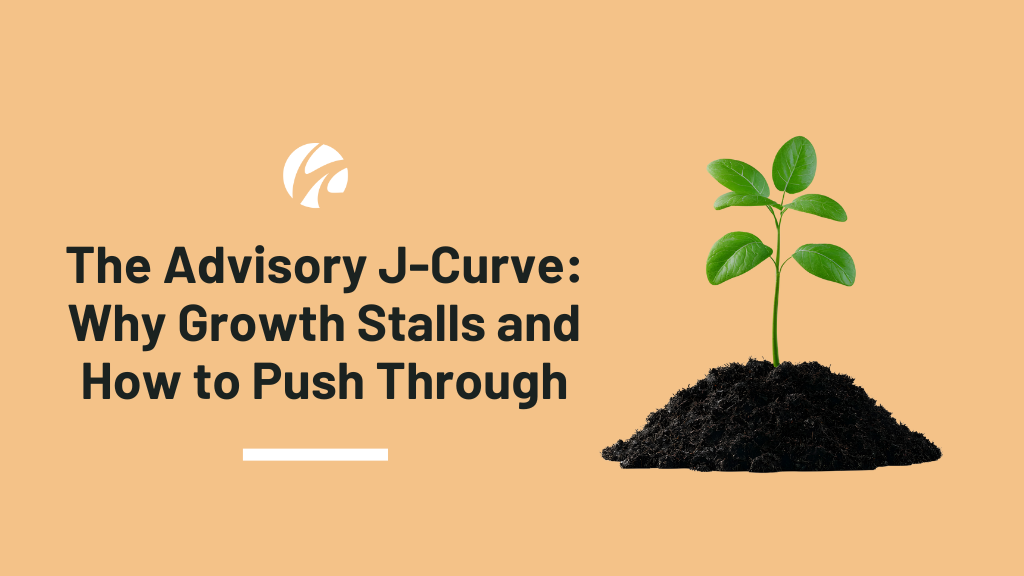3 min read
Advisory Services Are the CPA’s Path to Growth
In today’s rapidly evolving business landscape, advisory services have become a crucial component to sustainable growth for certified public...
3 min read
by:
 David Toth
on
Oct 14, 2025
David Toth
on
Oct 14, 2025

David empowers firms to grow strategically by aligning innovation, insight, and execution. He leads WRC’s signature programs and advises firm leaders on M&A, digital growth, and leadership development.
Table of Contents

In an era where CPA firms are battling commoditization, talent shortages, and rising client expectations, one truth has become clear: it’s not enough to offer advisory services — you must think like an advisor.
Many firms tout advisory capabilities. They’ve added fractional CFO work, built service lines around M&A consulting or outsourced accounting, and even branded “Client Advisory Services” teams. But something’s missing. Despite the new logos and the fresh fees, the client experience often remains transactional.
So, what’s the real difference between offering advisory services and embodying an advisory mindset?
Let’s break it down.
Advisory services are a defined set of offerings a firm markets and delivers to solve specific client problems. These services are:
Think of things like:
These services can be high margin and high impact — but only if clients know about them and trust you enough to bring you in upstream.
Too often, these offerings sit in silos — underutilized and poorly cross-sold — because the partners and managers on the front lines are stuck in compliance mode. That’s where mindset comes in.
The advisory mindset isn’t a service. It’s not a line on your website. It’s a way of being.
It means approaching every client interaction — tax prep, audit kickoff, payroll check-in — with curiosity, strategic thinking, and empathy. It means listening for what’s not being said. It means having the courage to ask tough questions and make bold suggestions.
What does it look like in practice?
These aren’t official services. They’re behaviors.
Firms that cultivate the advisory mindset build trust — not because of what they sell, but because of how they think.
Here’s the hard truth: the accounting profession is drifting away from relationships and toward transactions.
Why?
In that environment, the easiest thing to do is do the work, send the invoice, move on.
The problem? That’s a recipe for client turnover and partner burnout.
Clients want more. Not more services — more thinking. More strategic input. More proactive support. They want a firm that understands their business and isn't afraid to challenge them.
That’s the job of a trusted advisor. And you don’t get there with a menu of offerings. You get there with mindset, behavior, and courage.
Here’s where you start.
Reframe the Role of Everyone in the Firm
Everyone — from interns to partners — can think like an advisor. Teach your people to ask:
“What’s really going on in this business?”
“How can I add value beyond the task in front of me?”
Make that thinking visible, encouraged, and celebrated.
Most professionals don’t behave like advisors because they’re afraid.
Pat Lencioni, in Getting Naked, calls out these exact fears. Firms must train and model how to shed those fears — how to speak with honesty, admit what they don’t know, and challenge clients anyway. That’s how you build real trust.
Don’t wait for a formal “advisory engagement” to start thinking strategically.
Most firms already have advisory services. But if the audit team doesn’t know what the tech consulting team does — and doesn’t feel equipped to bring it up — it dies on the vine. Create internal training, cheat sheets, and advisory playbooks by industry.
Start with one goal: help your people ask better questions.
You can’t “sell” your way to trusted advisor status. You have to think your way there.
Advisory services are valuable. But the firms that will thrive in the next 10 years are the ones where everyone shows up with an advisory mindset — curious, proactive, strategic, and human.
Because in the end, clients won’t remember the template you used or the spreadsheet you sent.
They’ll remember how you made them think differently.
They’ll remember who got in the room with them — and got real.
They’ll remember who helped them solve problems they didn’t even know they had.
That’s the difference. And that’s your opportunity.
.png)
3 min read
In today’s rapidly evolving business landscape, advisory services have become a crucial component to sustainable growth for certified public...

4 min read
Back in the mid-90s, our firm followed the same playbook as most CPA firms: bring in a well-known consultant for our annual firm retreat, develop...

4 min read
Every accounting firm wants advisory revenue. The data confirms it: 80% of firms report increasing client demand for financial planning and business...